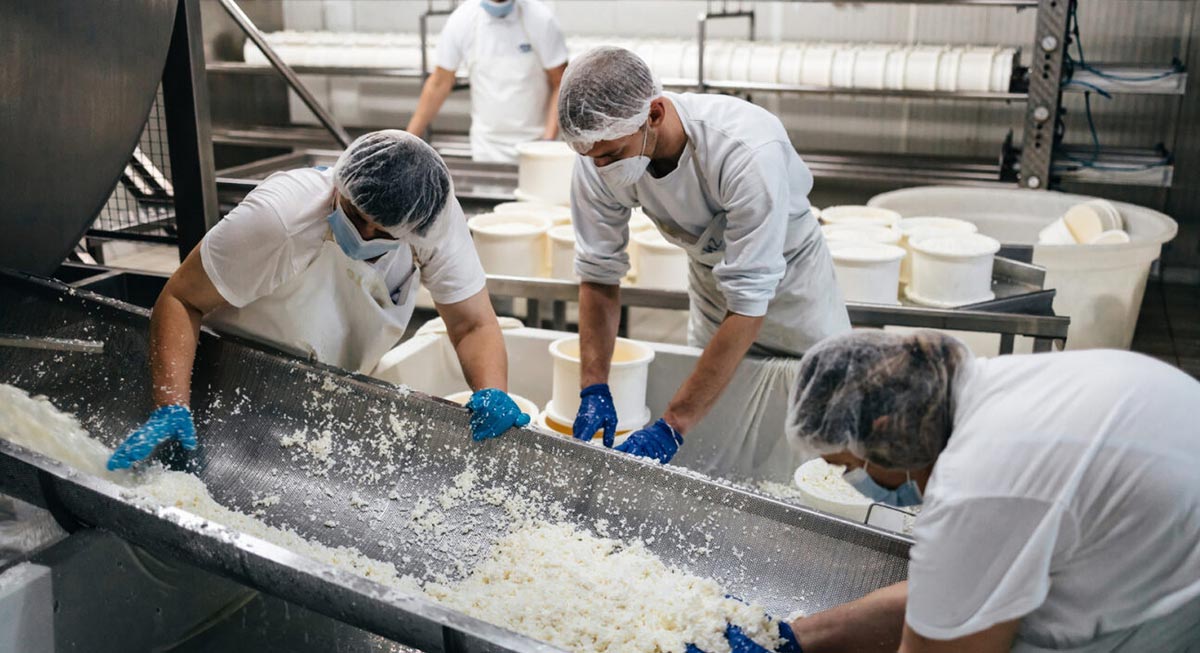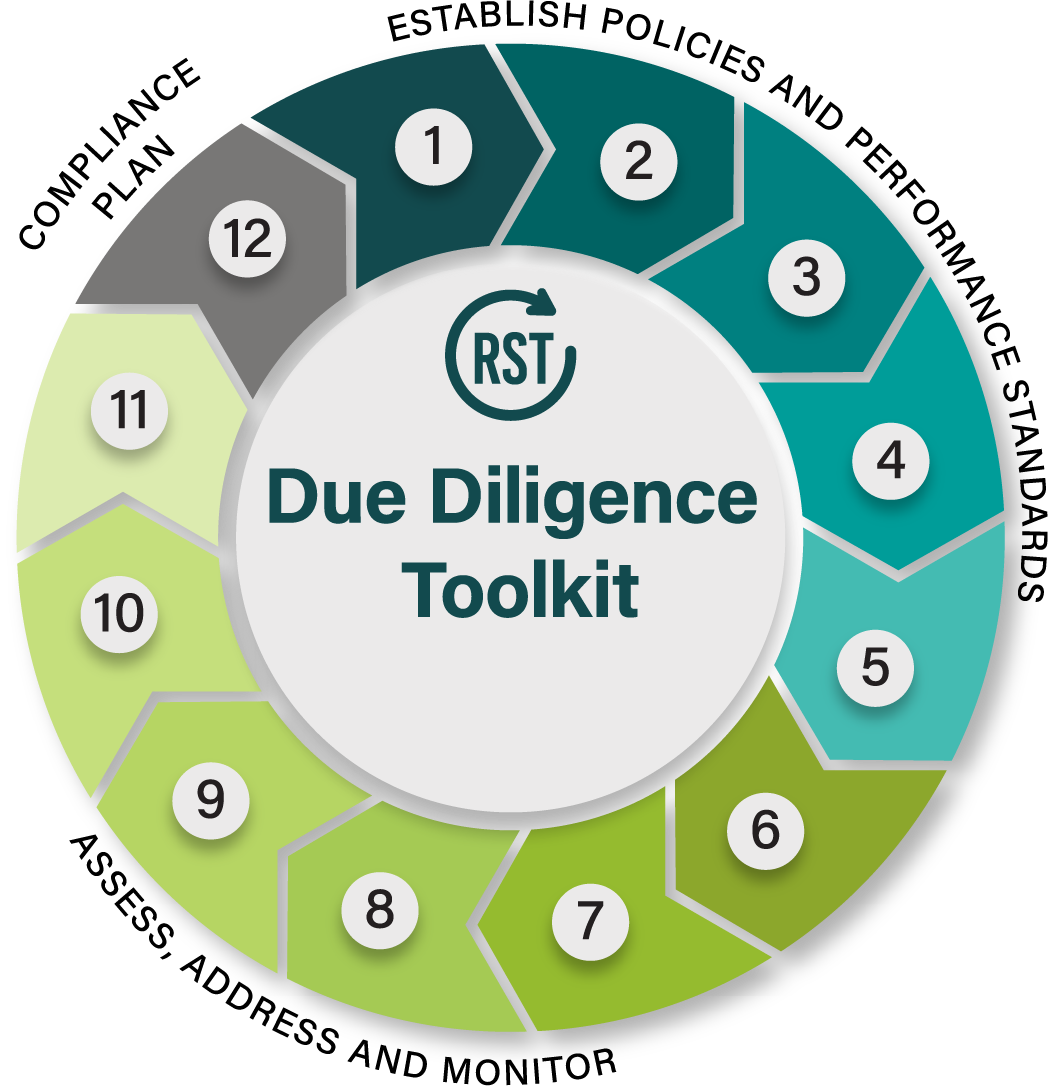Food & Beverage
Sector Toolset
Prevent and Address Forced Labor in Your Company’s Supply Chains 

Introduction & Framing
The food and beverage sector presents a diverse set of challenges when addressing forced labor risks. The supply chains are complex with limited visibility into conditions. Raw materials like cocoa, coffee, and sugar are traded on commodities markets, making it difficult to trace products to the farms often reliant on seasonal migrants who are at particular risk of human trafficking, including forced labor.
Tool 1: Supply Chain Due Diligence Process
[View Tool 1]Tool 1 describes the fundamental systems approach to risk management, known as “Identify, Evaluate, Control, and Monitor,” and provides underlying principles to follow when implementing a process for identifying human trafficking and executing solutions.
Tool 2: Code of Conduct
[View Tool 2]A Code of Conduct establishes basic performance expectations for suppliers, contractors, subcontractors, and agents. Your company’s Code of Conduct or sourcing policy should explicitly prohibit human trafficking and lay out protections for workers.
Tool 3: Performance Benchmarks
[View Tool 3]Benchmarks are important for evaluating the labor and human rights performance of suppliers and labor agents; they can be used to demonstrate how anti-trafficking policies should be implemented. The benchmarks in Tool 1A are aligned with relevant guidance from the International Labour Organization, including the Safety and Health in Agriculture Convention (C 184), Plantations Convention (C 110), and the Tenants and Share-croppers Recommendation (R 132).
Tool 4: Country-Level Review of Legal Protections Against Human Trafficking
[View Tool 4]This tool provides guiding questions for conducting a country-level legal review of factors relevant to the prevention of human trafficking.
Tool 4.1 Evaluating the Anti-Trafficking Requirements of Voluntary Sustainability Systems
Tool 5: Supplier Agreement
[View Tool 5]A Social Responsibility Agreement formally records a subcontractor’s, supplier’s, or agent’s commitment to follow a customer’s Code of Conduct; this commitment is important for establishing accountability expectations for all parties.
Tool 6: Supply Chain Mapping and Risk Assessment
[View Tool 6]Tool 6 guides you through mapping food and beverage product and labor supply chains and explains potential risks associated with each stage. Because your supply chain for each product will be unique, supply chain mapping should be conducted on a product-by-product basis.
Tool 6.1 Role of Traders in Addressing Human Trafficking in Food and Beverage Supply Chains
Tool 7: Criteria for Screening
[View Tool 7]Tool 7 provides guidance on how to screen and evaluate labor recruiters, with special considerations for informal labor recruitment in order to establish reasonable confidence in their ability and willingness to comply with applicable legal requirements and your company’s ethical recruitment standards.
Tool 8: Supplier Self-Assessment
[View Tool 8]A supplier/subcontractor self-assessment questionnaire (SAQ) allows your company to gain preliminary insight into potential human trafficking risks in how a supplier recruits, selects, and hires workers, how it works with labor brokers, and how migrant workers are managed. An Appendix with interpretive guidance for company use is provided.
Tool 9: Monitoring Labor Agent Performance
[View Tool 9]After engaging a labor recruiter, regular monitoring of the recruiter’s performance against the company Code of Conduct and legal requirements is essential to help ensure ongoing compliance.
Tool 10: Conducting Worker Interviews
[View Tool 10]Compliance efforts, including those related to monitoring the behavior of suppliers and labor recruiters, must put worker input at their core. Carefully and ethically gathering information from migrant workers through interviews and other mechanisms can help identify instances and parameters of instances of abuse.
Tool 11: Worker Engagement
[View Tool 11]Tool 11 introduces and describes multiple models and frames for worker engagement, including examples of workplace communication, worker organization, and effective grievance mechanisms.
Tool 12: FAR Compliance Plan
[View Tool 12]This tool is specifically intended for use by companies that need to demonstrate compliance with the requirements of the Federal Acquisition Regulation (FAR): Combating Trafficking in Persons and submit certification 52.222-56 set forward by 52.222-50(h) and 22.1703(c).
Food & Beverage Toolset
Establish Policies and Performance Standards
Assess, Address and Monitor
Compliance Plan
Dive deeper into forced labor case studies, compliance, and more in our Resource Library.
